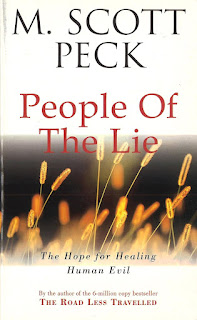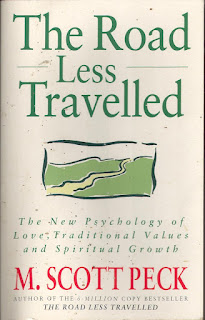4.1.1 Life Thread One - Important influences - M. Scott Peck on the nature of evil
Peck identifies specific traits among individuals he considers "evil": compulsive self-deception, selective abuse of specific targets while maintaining a semblance of kindness toward others, and a staunch refusal to introspect or accept responsibility for the harm they cause. His patient Charlene exemplifies this, treating others as objects to manipulate while incapable of real empathy.
In his analysis, Peck distinguishes between those on a trajectory toward evil—characterized by moral cowardice and denial of responsibility—and those irredeemably committed to it, who consistently manipulate and control others. He discusses group evil as well, using the My Lai massacre to illustrate how group dynamics and role specialization can dilute individual morality and shift personal responsibility.
Peck’s work represents a blend of psychology and moral philosophy, challenging readers to confront the mechanisms of evil within and around them. By framing evil as a choice toward self-deception and power rather than growth, he suggests that each individual faces a moral crossroads, where choosing integrity over self-righteousness is a path toward greater spiritual alignment.
Nowhere are these 'malignant self-righteous' traits more evident than in the operation of the civil service in Jersey; they actively refuse to acknowledge their own imperfection, they will never admit they have erred. They represent true evil.




Comments
Post a Comment